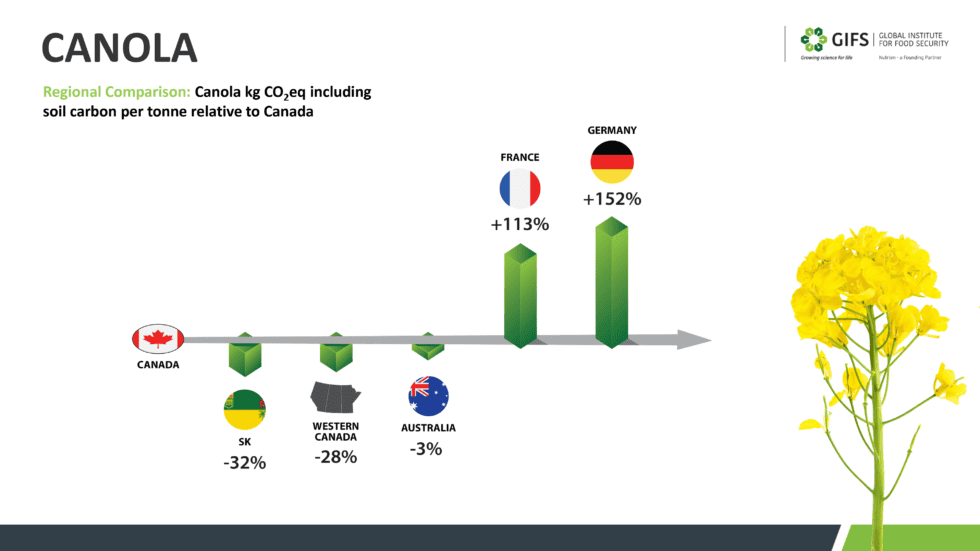Saskatchewan Sustainable Agriculture: A Global Model
Saskatchewan’s agricultural sector is making waves globally with its remarkably low carbon footprint crops, as revealed by a recent study from the Global Institute for Food Security (GIFS). Dr. Steven Webb, GIFS Executive Director, credits this success to the widespread adoption of innovative and sustainable farming practices.
Saskatchewan Trade & Export Partnership’s quarterly magazine, Global Ventures, published a feature on the study in it’s spring edition (pg. 11), highlighting the extensive research being done by Saskatchewan organizations and their Canadian partners.
The study, conducted in partnership with the University of British Columbia, analyzed carbon footprints of major Canadian crops, showcasing Saskatchewan’s significant lead over global competitors. Notably, Saskatchewan’s canola production boasts a 67% lower carbon footprint than the global average, thanks to practices like no till and minimum till farming, herbicide-tolerant canola adoption, and efficient crop rotation systems.
Saskatchewan’s reduced tillage methods not only result in fewer fertilizer applications for field peas but also yield a significantly lower carbon footprint compared to other regions. Additionally, Saskatchewan producers annually sequester approximately 15.6 million tonnes of carbon, nearly offsetting the province’s agriculture emissions by 95%.
Dr. Webb emphasizes the importance of continuous improvement, advocating for a comprehensive approach that combines innovation with national frameworks and regionally-optimized strategies for sustainable agriculture.
In essence, Saskatchewan’s agricultural achievements serve as a global benchmark for sustainable farming, highlighting the transformative impact of innovative practices on carbon reduction and environmental resilience.





